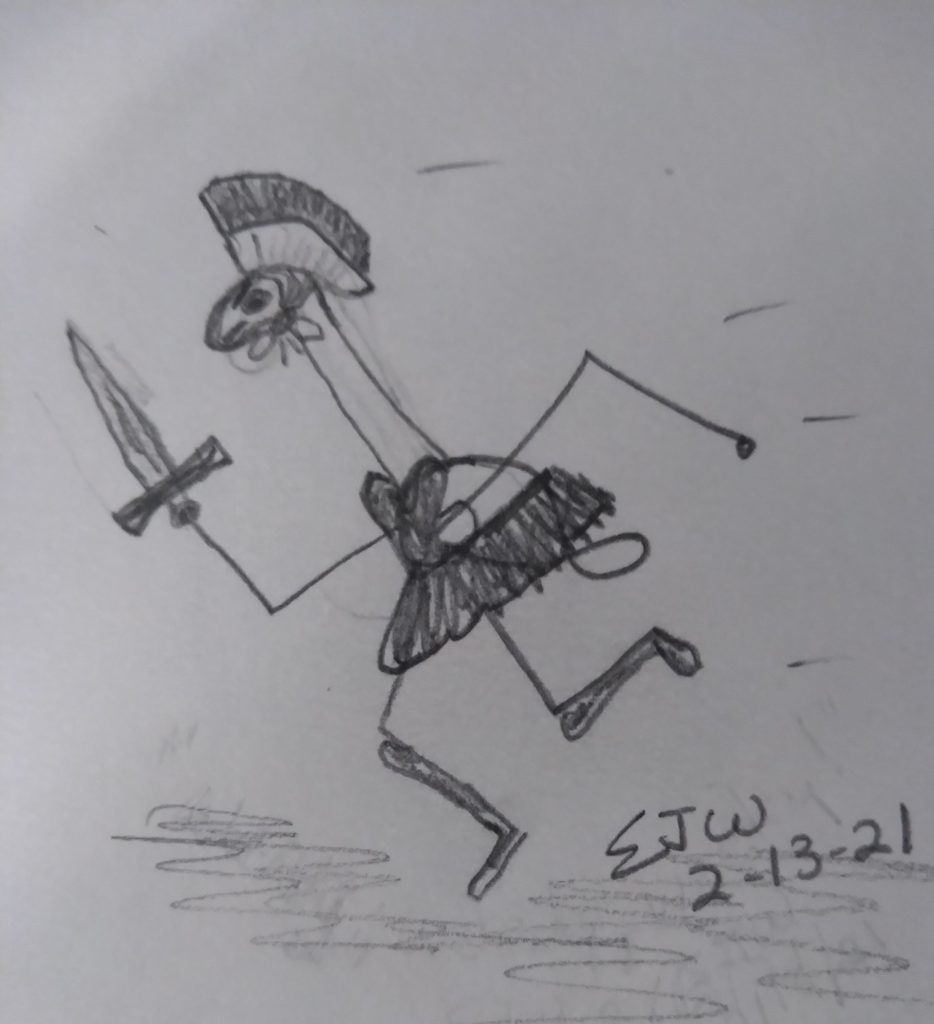I took three years (yes, three) of Latin in high school. For the first year we studied lots of vocabulary, conjugated verbs and declined nouns. I don’t know if “declined” is the right word (it probably isn’t), but I use it because Latin nouns have inflected endings just like the verbs. Verbs belong to different conjugations, whereas nouns belong to declensions. So while trying to memorize all the endings for verbs, I had to also memorize ten separate endings of each noun. Except there weren’t actually ten. There are in fact, five “cases” of nouns, so with the singular and plural thing you get ten endings. The only problem was that there were lots of repeats. Add all that to the concept that word order does not matter in Latin, and you have some formidable translation work on your hands.
I don’t fault my teachers, but the fact is I can’t read a word of Latin these days. What I can do is figure out the meaning of complicated English words because I am familiar with their Latin morphology. And their Latin etymology. (Heh heh. I love big words.) I’ve spent a great deal of time examining words for their Greek and Latin elements. (Yes, I know that English is a Germanic language, but when the Romans stomped into Britain, Greek slaves in tow, they didn’t leave until they had beefed up our working vocabulary by about 60%.) One of my favorite recollections from teaching high school English is when a student suddenly realized that an “astronaut” is a “star-sailor.”
So those three years in Latin class have served me well. And I must say, the class was a hoot sometimes, especially if you were a giggle-prone teenaged girl. Here’s a good one: the Latin word for “weapons” is “arma,” which is sometimes translated as “arms.” My cousin Mary (who may or may not have taken three years of Latin, not to mention English 13 with the dread Mrs. Rogers, just to humor me) and I about died laughing when one sentence was translated as follows: “The peasants were angry because they had no arms.” Those poor peasants. How did they harvest their crops?
Latin also sounds funny. Julius Caesar (second year translation project) started his diary with the famous quote “Veni, vidi, vici.” (I came, I saw, I conquered. Arrogant little cuss, wasn’t he?) These days, trying to keep it from sounding silly, those who are so inclined would pronounce is something like “Vanee, Veedee, Veechee,” in dignified tones. Truth is, though, Caesar himself would probably have said something more like “Waney, Weedy, Weeky.” Try saying that five times fast without falling out of your chair laughing.
Such a long time ago that was. Tempus fugit, my friends.

One Comment on “I love Latin class!”